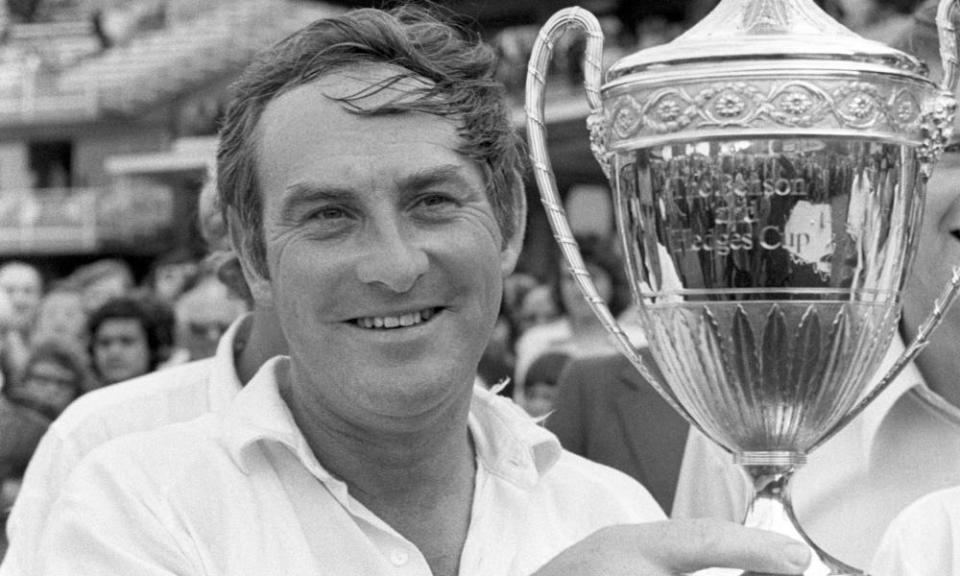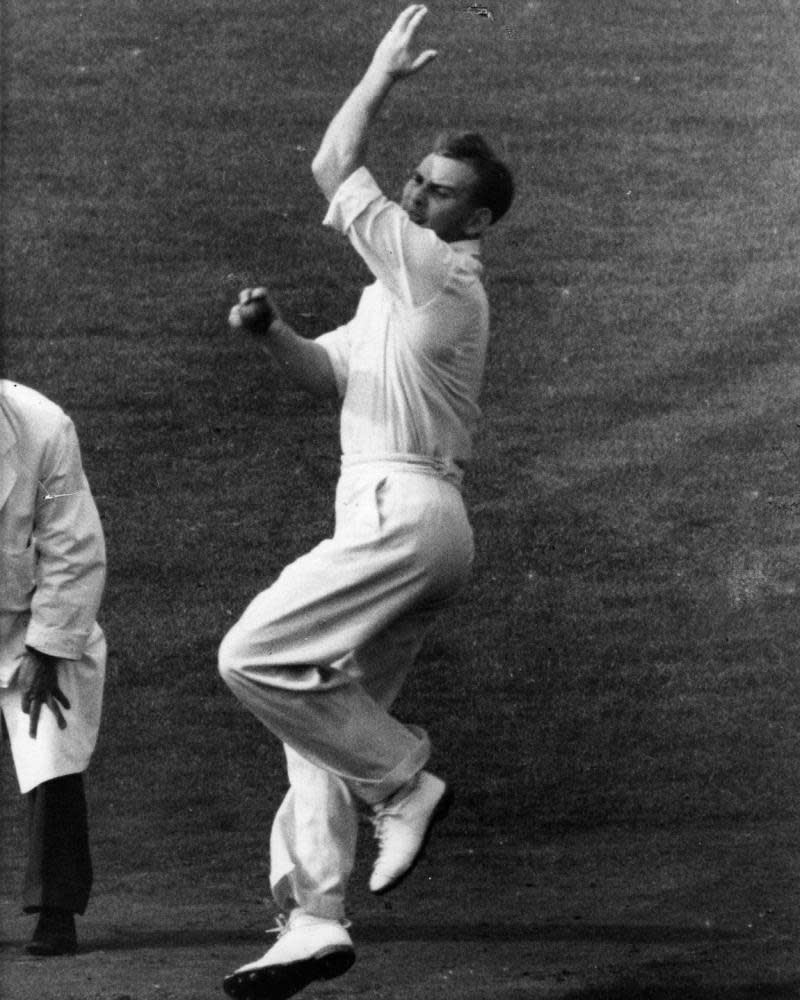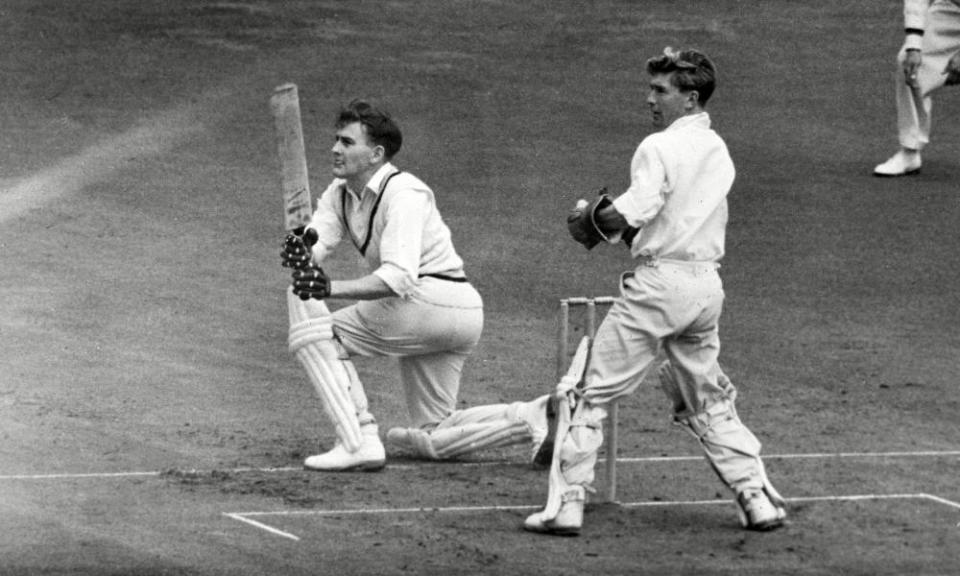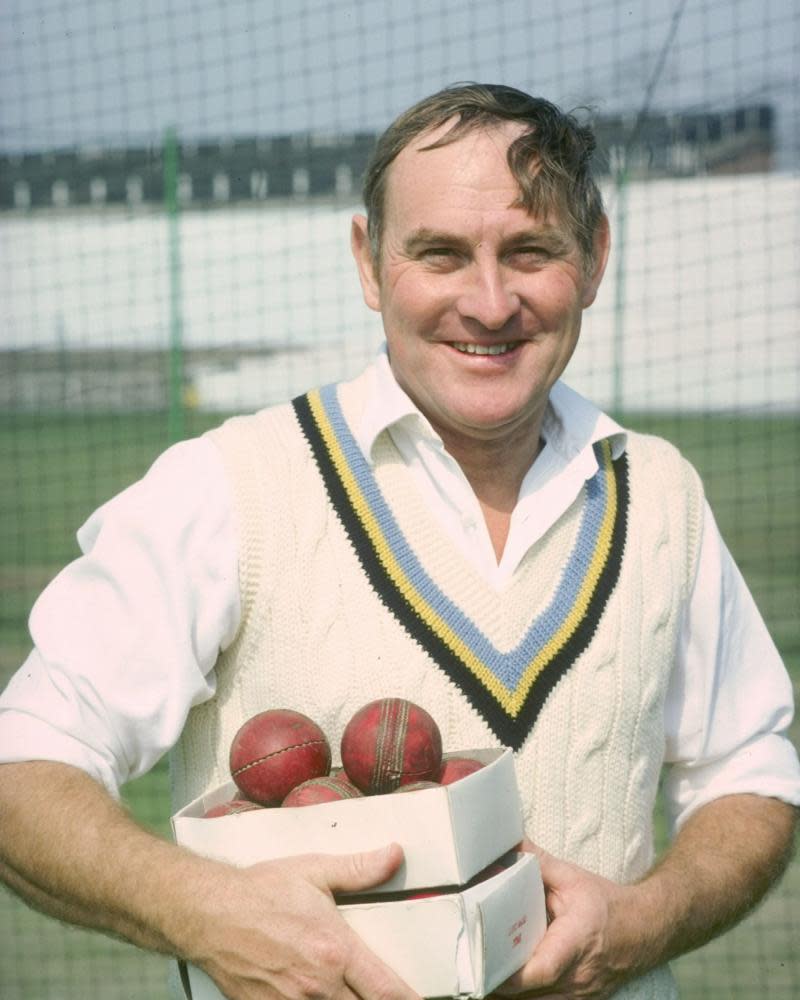Raymond Illingworth obituary

Raymond Illingworth, who has died aged 89, was one of England’s most successful cricket captains, leading his side to a series victory in Australia, in 1970-71, and then retaining the Ashes at home, in 1972. A tough Yorkshireman and an all-rounder who gave nothing away with either bat or ball, as a skipper Illingworth was a master of the meaningful bowling change or disconcerting field adjustment, and could often affect the course of a match just by ratcheting up the psychological pressure on the opposition.
He was also a superb man-manager who could get the best out of even the most difficult characters by applying equal measures of empathy, common sense and firmhandedness. While he undoubtedly benefited from having a strong team to nurture – with players including Geoffrey Boycott, John Edrich, Basil D’Oliveira, Derek Underwood and John Snow at his disposal – he also ensured that his players displayed tremendous spirit.
Success came not only with England but, in exile from Yorkshire, in county cricket with Leicestershire, where as captain in the early 70s he turned an over-relaxed, unambitious side into a trophy-winning outfit. Later he returned to Yorkshire as their cricket manager and had a spell as England manager, although in both roles he had noticeably less success than on the pitch.

Born in Pudsey, West Yorkshire, Raymond was the only child of Ida and Fred Illingworth. When he was four the family moved down the road to Farsley and his father, a cabinet maker, fashioned Raymond’s first cricket bat in his workshop. Determined to be a sportsman, at 11 he refused even to sit exams for grammar school and at 14 was apprenticed to his father, allowing him days off to play cricket for Farsley in the Bradford League. Much of his national service in the RAF was spent on the cricket field, including for the Combined Services, and he made his Yorkshire debut aged 19 in 1951, scoring 56 in his first innings.
The county side of the era was a collection of hard, self-serving Yorkshiremen with acid tongues and zero sympathy for any new boy – “no word of encouragement, no helpful tips, no pat on the back … and heaven help you if things went wrong,” he recalled. It toughened him up quickly, but was a dispiriting experience that informed the nature of his later captaincy, which he aimed to make more inclusive.
He was especially influenced by the appointment in 1958 of a more soft-focused but strong-minded captain, Ronnie Burnet, who promoted camaraderie rather than internal strife – and as a result won Yorkshire the County Championship in 1959 for the first time in a decade.
That season was one of Illingworth’s best, and in the previous year he had made a quiet England debut in the fourth Test against New Zealand at Old Trafford. He had to wait a year for his next match, against India, and was then picked for the 1959-60 tour to the West Indies. For a number of years, however, he rarely felt secure of selection, and from mid-1963 to the summer of 1967 was hardly in the team at all. Yet by 1969, in his 31st Test, he had become England captain.
That first match as skipper arrived at the age of 37 after the incumbent, Colin Cowdrey, snapped an achilles tendon. Illingworth stepped in for the three-Test home series against West Indies and provided a dynamic counterpoint to Cowdrey’s diffident style. England won the first match at Old Trafford and he scored his first Test hundred in the second drawn game at Lord’s, while in victory in the third at Headingley, where every decision he made seemed to reap rewards, he had one of his finest hours as captain. As a consequence he was reappointed for a second series that summer, against New Zealand, which England won 2-0.
In 1970 Illingworth was at the helm for an unofficial five-match home series against a strong Rest of the World side, which England lost 4-1. He continued as captain for the 1970-71 Ashes tour, and thanks in great part to his shrewd, combative leadership, England won the Ashes for the first time in more than a decade.

Much of that exhausting seven-match series was played under intense pressure, particularly during the decisive last Test at Sydney, which England managed to win without Boycott and, for the latter half of the match, minus Snow, who had broken a finger. In Australia’s first innings Illingworth had shown his mettle by marching his players off the pitch when spectators bombarded Snow with bottles. Despite England’s tour manager, David Clark, trying to order Illingworth back on to the field, he stood firm and refused to resume until order had been restored.
He completed that winter tour with a 1-0 win against New Zealand, followed with victory by the same margin at home to Pakistan in 1971 and, after a shock 1-0 defeat to India in the same summer, retained the Ashes at home the next year with a 2-2 series draw, a feat that earned him appointment as CBE.
By then aged 40 and thoroughly drained by two combative Ashes series, he made himself unavailable for the 1972-73 tour to Pakistan and India, but was back in charge for two home series against New Zealand and West Indies in 1973.
England won comfortably against New Zealand but found themselves in unexpected trouble against West Indies, and during the last game of the three-match series at Lord’s, Illingworth was told he would not be captain for the forthcoming winter tour to the Caribbean. His side lost that Lord’s match – and with it the series, 2-0. But as the decision had been taken before its outcome, he felt the move had been “political” a result perhaps of a feeling among the selectors that he was too much in the players’ camp and not enough in theirs.

Illingworth had led his country 31 times between 1969 and 1973 and had lost just five Tests over the period, winning 12 and drawing 14. Of the nine series in which he was captain he was victorious in six, winning his first five series in a row without conceding a match against any opposition.
Moreover, in 61 Tests he had made a significant contribution as an all-rounder, averaging 23.24 with the bat and 31.20 with the ball. A tight, thoughtful off-spinner, he was also a solid, orthodox batsman who could block or swing as the state of the game required, and while he could hardly be termed a “great” in any one department, he arguably deserved that tag when his complete package of bowling, batting, fielding and captaincy was taken into account.
After he lost his England place with the captaincy, Illingworth returned to focus on county cricket. He had expected to see his days out with Yorkshire, but in 1968, after 17 years in which he had been a key member of seven County Championship-winning sides, his request for a three-year contract was refused and so he left for Leicestershire, who had asked him to be their skipper.
His new county had never won anything when he joined them in 1969, but Illingworth engineered a dramatic transformation. Within three years they had taken their first title – the Benson & Hedges Cup in 1972 – and under his captaincy they also won the John Player League in 1974, the County Championship and Benson Hedges Cup in 1975, and the John Player League again in 1977.
After 10 happy years at Leicestershire, in 1979 he accepted an offer from Yorkshire to become their cricket manager, allowing him to retire as a player. But it was a backroom position dogged by internal disputes, and after a poor start to the 1982 season Illingworth felt compelled to come out of retirement to captain the side at the age of 50. The following year Yorkshire won the John Player League under his command, but they also finished bottom of the County Championship, and he resigned all his roles in 1984, having played 787 first class matches, the ninth highest tally of all time. He took 2,072 wickets at 20.27 in his first class career with a best of nine for 42, and scored 24,134 runs at 28.06 with a highest score of 162.
After a decade of freelance media work, Illingworth became England’s chairman of selectors in 1994, a year later also taking on the job of manager. He inherited a weak team captained by Michael Atherton, but did not forge an easy relationship with a new generation of players, and found there was little he could do to make a difference. He left the job after three years and settled down to a modest life of quiet retirement, which included regular golf and family holidays in Spain.
In 1958 he married Shirley Milnes. Following her death from cancer in March 2021, and suffering from cancer himself, he backed calls for the right to assisted dying. He is survived by their two daughters, Diane and Vicky.
• Raymond Illingworth, cricketer, born 8 June 1932; died 25 December 2021

 Yahoo Sport
Yahoo Sport 





































